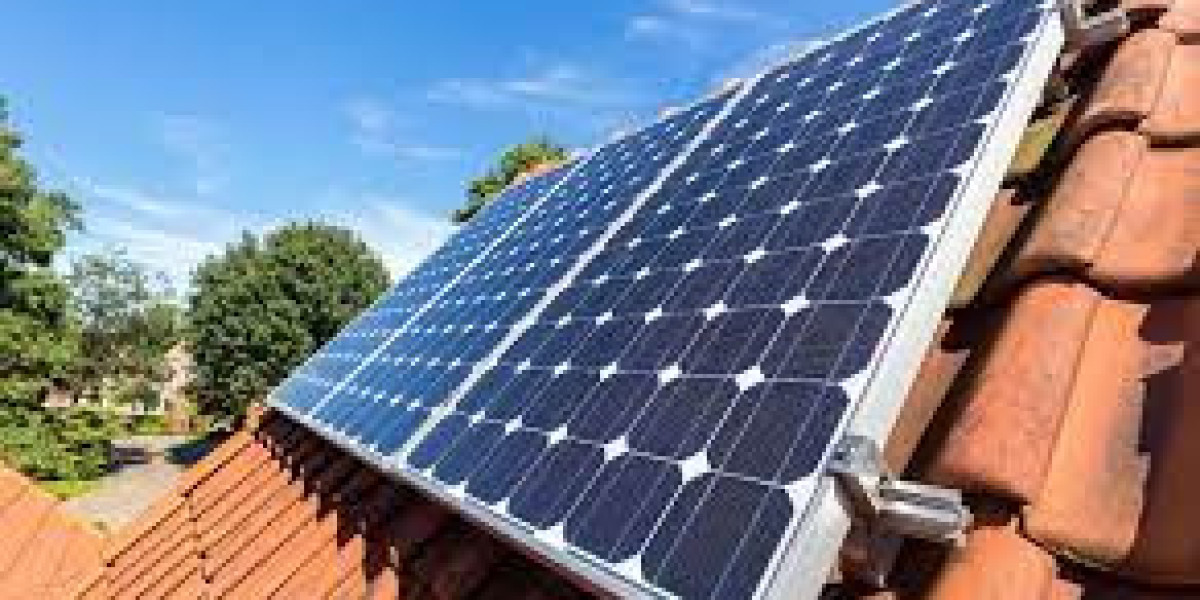As the global demand for renewable energy grows, the United Kingdom is increasingly turning to solar photovoltaic (PV) technology as a practical, affordable, and eco-friendly energy solution. Whether you're a homeowner aiming to cut energy bills or a business focused on sustainability, solar PV panel installation offers substantial benefits in both the short and long term.
This article explores the current landscape of solar PV panel installation in the UK — covering benefits, costs, installation process, government incentives, and what to consider before making the switch.
What Is a Solar PV Panel System?
A solar photovoltaic (PV) system converts sunlight into electricity using semiconductor technology embedded in solar panels. Unlike solar thermal systems (which heat water), solar PV systems generate electricity for powering your home or business.
A standard solar PV system includes:
Solar panels – usually installed on rooftops
Inverter – converts direct current (DC) from the panels into usable alternating current (AC)
Generation meter – tracks how much energy your system produces
Optional battery storage – stores unused energy for later use
Why Solar PV Panels Are Gaining Popularity in the UK
Despite the UK's cloudy reputation, solar PV systems are effective even in lower light. Thanks to advancements in solar technology and improved efficiency, solar panels can still generate electricity on overcast days.
Here’s why more UK residents are opting for solar:
1. Lower Energy Bills
One of the most attractive reasons for going solar is the reduction in electricity costs. Once installed, solar PV panels can significantly cut your monthly bills by generating free, renewable energy. Over the system's 25+ year lifespan, this adds up to substantial savings.
2. Environmental Impact
Solar PV systems produce zero emissions during operation, making them an excellent choice for those concerned with climate change. By switching to solar, households can reduce their carbon footprint by over a tonne per year.
3. Government Support – Smart Export Guarantee (SEG)
The Smart Export Guarantee (SEG), introduced in 2020, allows you to earn money by selling unused solar electricity back to the grid. Energy suppliers with over 150,000 customers must offer SEG tariffs, making it easier than ever to benefit from your system’s excess generation.
4. Zero VAT on Residential Installations
From 2022, residential solar panel systems in the UK are exempt from VAT until 2027. This government initiative helps reduce upfront costs and makes solar installations more financially accessible.
Is the UK Sunny Enough for Solar Panels?
Absolutely. The UK receives an average of 850 to 1,200 sunlight hours annually, depending on region. For instance:
Southern England tends to get the most sun
Scotland and the North still receive enough light for viable solar installations
A 4kW solar PV system (common for residential properties) can generate around 3,400 kWh of electricity annually — about 75% of the average UK household’s usage.
How Much Does a Solar PV Installation Cost in the UK?
The cost of solar panel systems has dropped significantly over the past decade. On average:
3kW system: £5,000–£6,000
4kW system: £6,000–£8,000
Battery storage (optional): £3,000–£7,000
Prices vary depending on panel type, roof complexity, and installer rates. While this represents a significant investment, most homeowners see a return on investment (ROI) within 7 to 10 years — sometimes sooner if energy prices rise.
Installation Process: What to Expect
1. Site Assessment
An MCS-certified installer will assess your roof’s condition, angle, orientation, and shading. South-facing roofs are ideal, but east- and west-facing roofs also perform well.
2. Quotation and Design
You’ll receive a system design and detailed quotation based on your roof and energy usage.
3. Installation
Most residential installations are completed in 1–2 days. Panels are mounted using brackets, and electrical components are installed.
4. Commissioning and Certification
After installation, the system is tested and certified. You’ll receive an MCS certificate, which is essential for claiming SEG payments.
Maintenance and Lifespan
Solar PV systems require minimal maintenance:
Cleaning: Periodic cleaning may be needed to remove dirt or moss
Inspection: Visual inspection every couple of years
Inverter: May need replacement after 10–15 years
Panels typically come with 25-year performance warranties and maintain 80–90% efficiency over their lifespan.
Planning Permission in the UK
Most domestic solar PV installations do not require planning permission if they meet "permitted development" criteria:
Installed below the highest point of the roof
Project no more than 200mm from the roof surface
Not installed on listed buildings or conservation areas (unless with permission)
For commercial or ground-mounted systems, you may need approval from your local planning authority.
Key Considerations Before Installation
Before investing in solar PV, consider the following:
Roof condition: Ensure it's in good repair to avoid future disruptions
Shading: Nearby trees or chimneys can reduce performance
Energy usage: Consider your household or business’s electricity consumption
Export tariff: Research SEG tariffs offered by different energy suppliers
Benefits for Businesses and Commercial Properties
Solar PV isn’t just for homes — businesses can also gain:
Reduced operating costs
Improved corporate sustainability credentials
Capital allowances or tax relief in some cases
Enhanced energy security
Many UK companies, from supermarkets to schools, have embraced solar to meet green energy targets and reduce overheads.
Final Thoughts
Solar PV panel installation in the UK is no longer a niche investment — it’s a mainstream energy solution that delivers environmental and financial rewards. With favourable government incentives, falling installation costs, and rising energy prices, there’s never been a better time to go solar.
Whether you're a homeowner looking to reduce your carbon footprint or a business aiming for long-term savings, solar PV systems provide a reliable, future-proof source of energy. Take the first step toward energy independence today and help power a cleaner, greener Britain.








